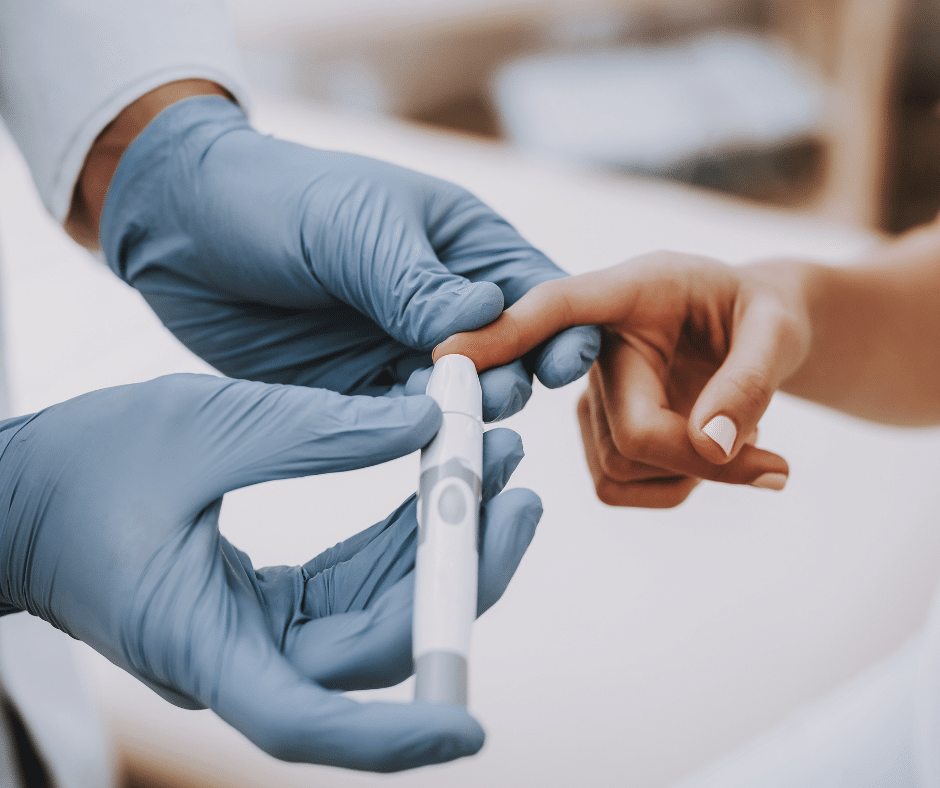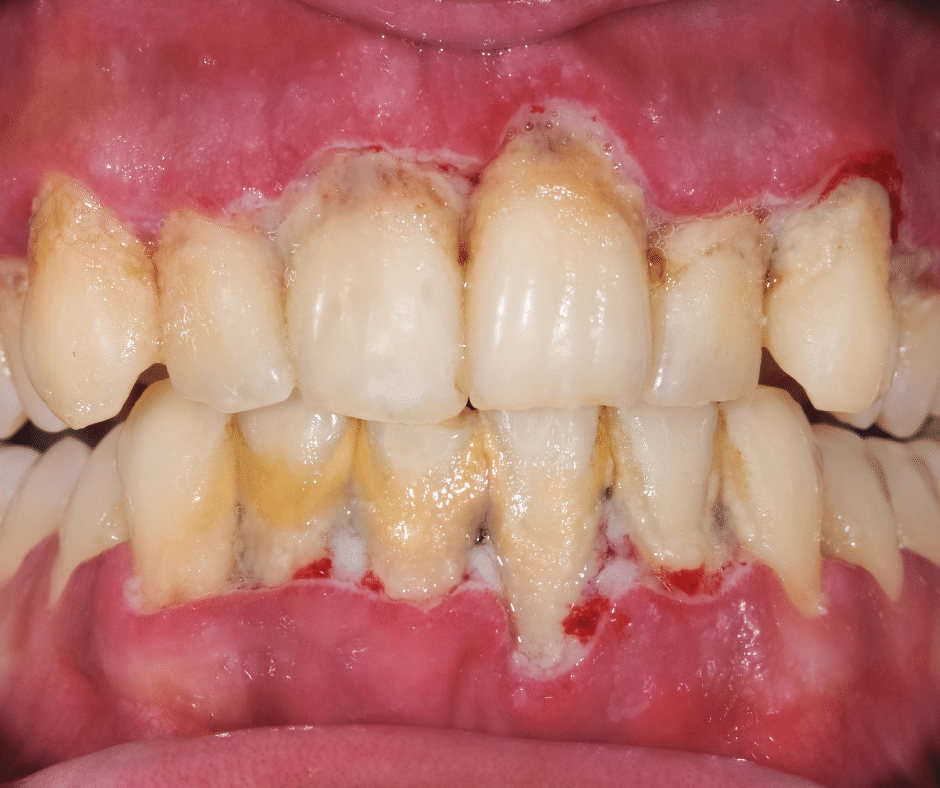WHAT INCREASES MY RISK FOR PERIODONTAL DISEASE?

Nearly 50% of adults in the US over the age of 30 are impacted by periodontal disease. That percentage jumps to 70% in adults 65 and older. Looking at these numbers, it’s obvious that periodontal disease, ranging from slight to severe, is very prevalent in our society. So, what are some of the factors that increase our risk of developing periodontal disease and what risks can we mitigate? Below we will look at the most common causes and risk factors that will impact whether or not someone will develop periodontal disease during their lifetime.
Tobacco Use
The number one risk factor for periodontal disease is tobacco use of any kind. Smokers specifically are twice as likely as non-smokers to be impacted. Tobacco use weakens the overall immune system making it harder for your body to fight the infection of gum disease. If you undergo gum therapy and continue to smoke your gums may not heal as well.
Diabetes
You can take an in-depth look at the correlation between diabetes and periodontal disease in this post. Basically, uncontrolled blood sugar can increase the severity of periodontal disease AND active periodontal disease makes it more difficult to regulate blood sugar. The link here goes both ways and is very much involved in the body’s overall inflammatory response.
Family History/Heredity
If you have family members who have lost teeth due to periodontal disease you may be more susceptible based on your genetics. At its core, periodontal disease is caused by bacteria and we all have different kinds of bacteria in the oral cavity. Someone with more disease-causing bacteria will be more at risk. Other people may have different salivary chemistry that causes more tartar buildup. Still, others may have thinner gum tissue that is less resistant to disease. These are inherent risk factors, meaning they aren’t something we can change to decrease our risk so it is important to be proactive.
Poor Oral Health
As stated previously, periodontal disease is caused by bacteria and if you are not practicing good home care habits and seeing your dentist regularly, it may not take long for periodontal disease to develop. The goal is to consistently be disrupting the environment of the bacteria. This is achieved by mechanically removing plaque with brushing and flossing AND killing bacteria with a mouth rinse. Everyone will eventually build up tartar though, which cannot be removed with those methods, that’s why it’s imperative to see your hygienist regularly to disrupt this other bacteria safe haven. By continually disrupting the bacteria it makes it more difficult for the disease to develop and cause bone loss.


Other risk factors for periodontal disease include but are not limited to:
- Stress
- Impact on Oral Health: Chronic stress can weaken the immune system, making it more challenging for the body to fight off infections, including those affecting the gums.
- Behavioral Effects: Stress may lead to habits such as teeth grinding or clenching, which can contribute to periodontal problems.
- Age
- Natural Aging Process: As individuals age, they may become more susceptible to gum recession and other age-related changes that can increase the risk of periodontal disease.
- Cumulative Effects: The longer a person has been exposed to potential risk factors, the greater the cumulative impact on their periodontal health.
- Poor Nutrition/Obesity
- Dietary Influence: A diet lacking in essential nutrients, particularly vitamin C, can compromise the immune system’s ability to combat gum infections.
- Obesity Connection: Research suggests a correlation between obesity and periodontal disease, possibly due to inflammatory responses associated with excess body weight.
- Osteoporosis
- Bone Density Impact: Osteoporosis, a condition characterized by reduced bone density, can affect the jawbone and potentially contribute to tooth loss and periodontal issues.
- Shared Risk Factors: Osteoporosis and periodontal disease share common risk factors, such as age and hormonal changes.
- Autoimmune Diseases
- Immune System Response: Conditions like rheumatoid arthritis or lupus involve an overactive immune response, potentially increasing the risk of inflammation and periodontal problems.
- Medication Impact: Some medications used to manage autoimmune diseases may affect oral health.
- Clenching/Grinding Teeth
- Mechanical Stress: Clenching or grinding the teeth (bruxism) can exert excessive force on the supporting structures of the teeth, leading to gum recession and increased vulnerability to periodontal disease.
- Nighttime Bruxism: Individuals who grind their teeth while sleeping may be unaware of the habit, making it essential to address during dental checkups.
- Medications
- Side Effects: Certain medications, including some antihypertensive drugs, anticonvulsants, and immunosuppressants, may have side effects impacting gum health.
- Dry Mouth Risk: Medications that cause dry mouth (xerostomia) can reduce saliva production, increasing the risk of gum disease due to decreased natural cleansing and buffering effects.
